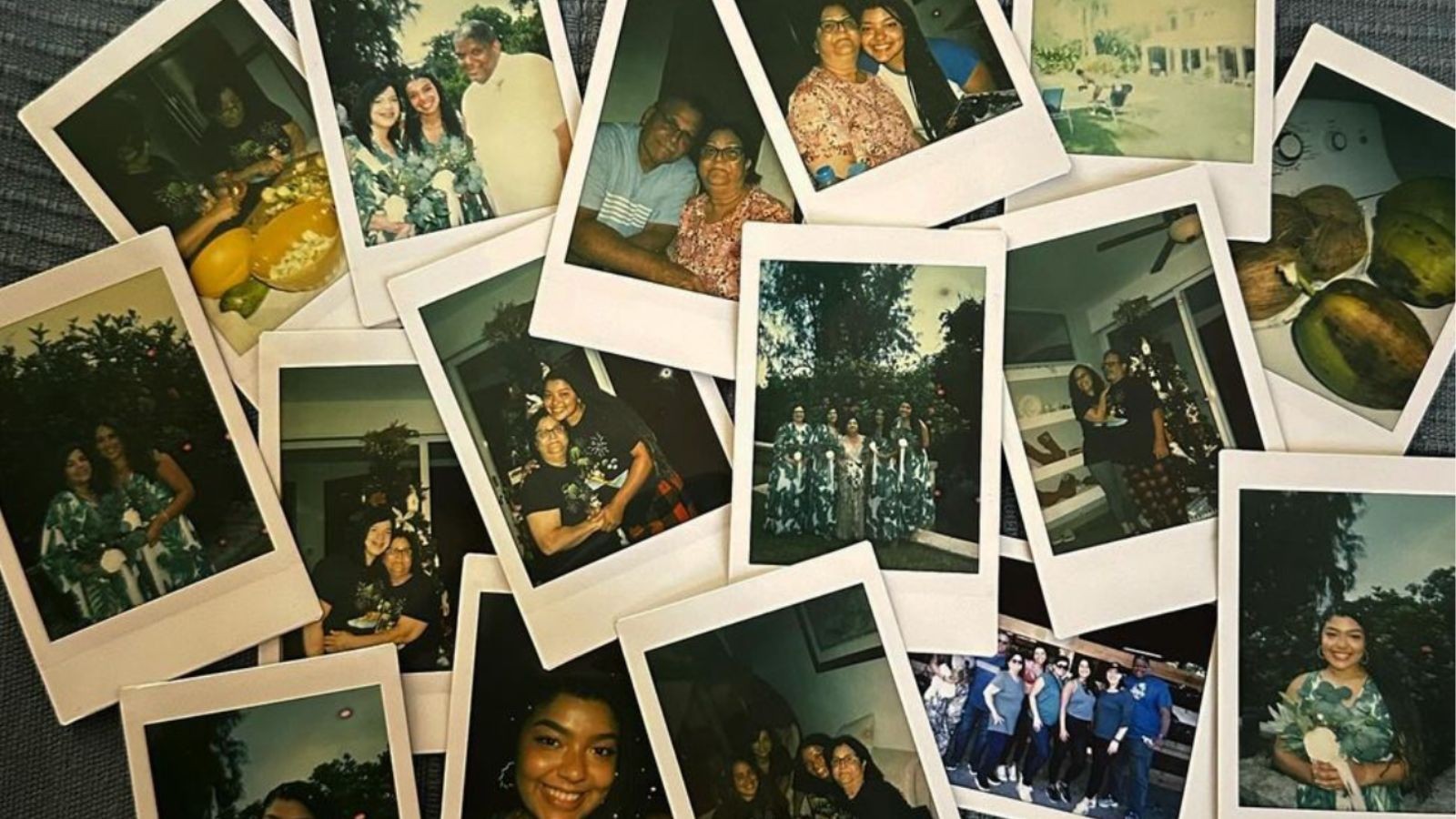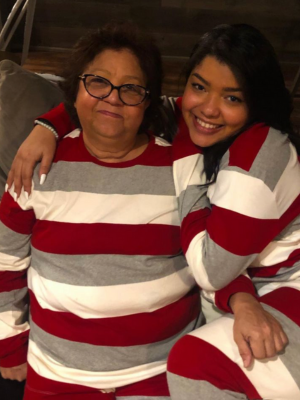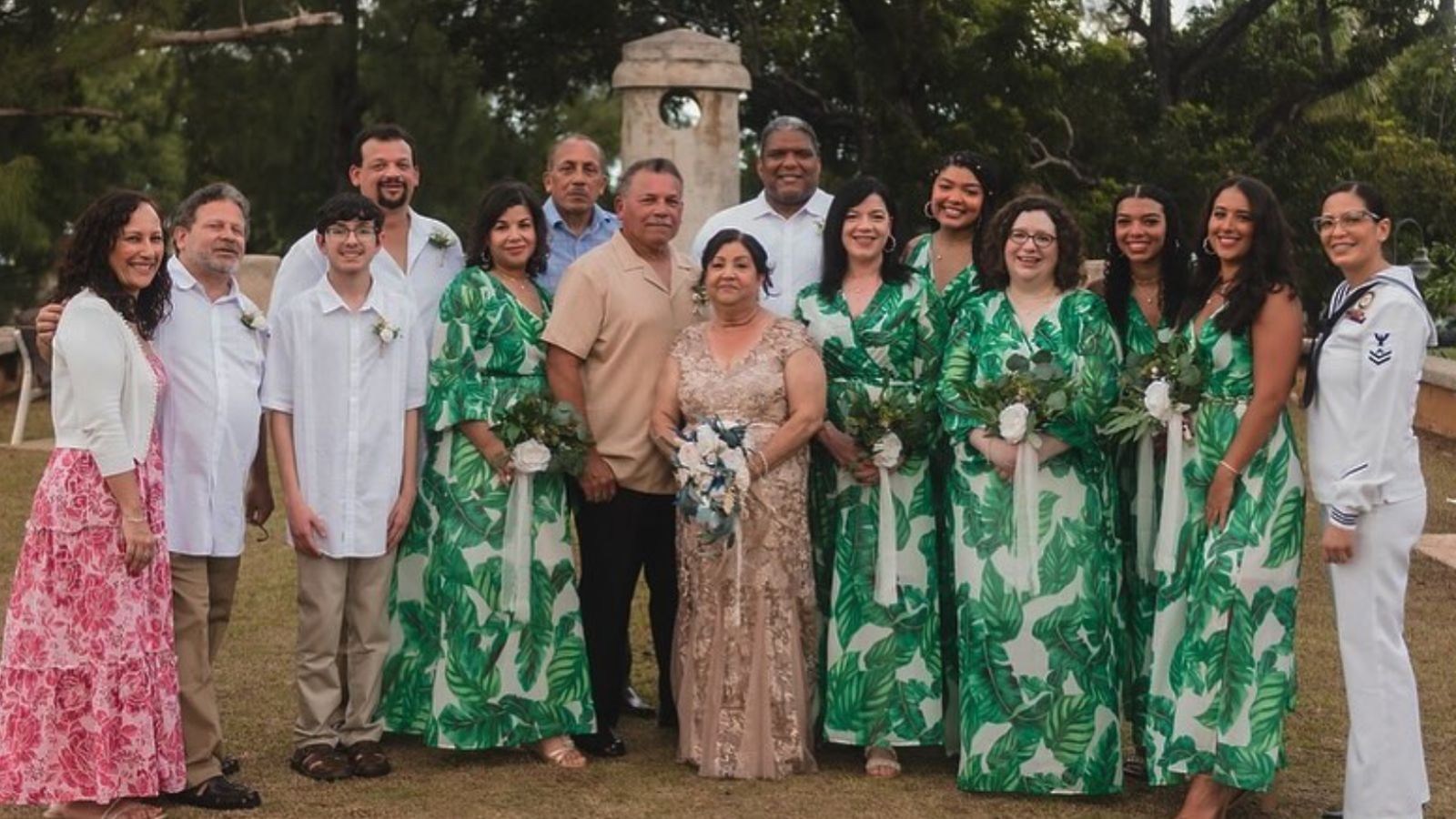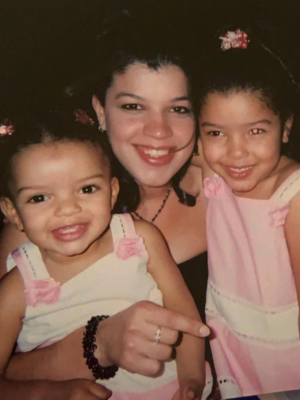Taylor Carey on Filling the Gaps in Our History
Taylor Carey (GSAS'24) is a graduate student at the European Institute at the Graduate School of Arts and Sciences.
For Women’s History Month, she spoke with us about how her unique perspective as an historian allows her to notice the missing information about women of color in historical records. She also reflects on how the experiences of the women in her family have inspired her, her identity as a Black and Puerto-Rican woman, and why taking up space can make an impact now and in the future.

This interview has been edited for clarity and style.
What does Women’s History Month mean to you or what are some ways people can observe the month?
My major area of interest is history. A lot of what I'm trying to do is bring the intersection of race and gender into historical spaces.
There's a lot of gaps with women of color, in general. I try to do as much as I can, but with those gaps from a historical sense, there's nothing really to do other than speculate and assume certain things. Thinking about women's history, it is important to take what we have now and try to fill in those gaps.
My perspective, and a historian's perspective, is unique in that way because we see how those gaps can affect history in the long run. Self-education is really important. It's not someone else's job to educate you. To me, Women’s History Month is about filling in those gaps and educating yourself.
Do you believe that your work now and in the future will have an impact on women or in changing things from where they are now?
People like me – in a gender and racial sense – being at a prestigious institution, such as Columbia, and taking up those spaces, regardless of exactly what we're doing, is extremely impactful. Our differing perspectives diversify the discourse of the classroom.
"If you look at a lot of historical archives, there are gaps in history around women of color, specifically. It's an overarching theme... I try to bridge and fill those gaps."

Were you able to find your community, whether at Columbia or in the neighborhood? What was that experience like for you?
I'm actively trying to find it. I live in Central Harlem, so that is a completely different world than Columbia. I mean, it's so close, but it's just a completely different world.
I'm definitely the only – or one of the only – women of color in most of the classrooms that I'm in. I knew that going in.
I don't know exactly what's going to happen next. My program is unique because there's not a lot of one year programs at Columbia. I'd love to join more student groups, but at this point I'd only be involved for a couple of months.
Do you think it’s important for women of color to be represented in your field of study and why do you think it's important?
I do think it makes a difference and is important, especially in history. It's primarily a white male field, but I feel like that's a lot of fields. If you look at a lot of historical archives, there are gaps in history around women of color, specifically. It's an overarching theme. The winners are writing the history books, and women of color were never the winners, so they really never wrote the history books.
I try to bridge and fill those gaps.
It’s important now because my perspective is different from an older white male person. They wouldn't really be like, “I wonder what the women were doing at this point.” They wouldn't really think about that. That's not personal to their story.
Bringing my perspective and my story into what I'm doing both here at Columbia, but also going into whatever field I choose, is important. I'm looking more towards international relations or some sort of government work. That's what I want to do in the future.
"People like me – in a gender and racial sense – being at a prestigious institution, such as Columbia, and taking up those spaces, regardless of exactly what we're doing, is extremely impactful."

Do you see yourself as an inspiration to others? And if you do, in what way?
I would say yes. A lot of people didn't expect me to do this, especially coming from VCU (Virginia Commonwealth University). It's not the most well known place. Coming to New York and being an ambitious woman of color is an inspiration in itself. Regardless of what I do after.
I want to do great things, and I want to do all these impactful things. I have those aspirations and expanding the realm of possibility for people like me is inspiring regardless of what I do, though I'd love for everything that I do to be impactful.

What advice or suggestions would you give to someone who is, or wants to, pursue a career in your field?
It is really important to find community in your field. And look beyond what’s right in front of you. If I just thought about everything that was right in front of me and only saw the demographics in front of my face, I would feel very alienated.
Social media is a big part of connecting people so is getting out of that bubble of wherever you are. It is really important to realize that there's more people like you, and it's not just what's in front of you.
Is there a woman who has inspired you in your life, or in your studies right now?
The women in my family are really inspiring.
They're a perfect example of bridging the different things of what's expected of them and what women do every day. They are nurturing and resilient.
I'm thinking about my grandmother. She’s from the mountains of Puerto Rico and her life story is completely different from mine. It makes me realize how fast things have changed from two generations ago. Her story is completely family based. By the time she was the age I am now, she had multiple kids, she was married, and she was doing all these different things that I haven't experienced yet.
A lot of people experience that when they talk to their family members. They don't exactly know their life story. I've always wanted to interview the people in my family. Being a history person and history buff, I want to know the history of these people around me that I love and care about so much.
My grandmother has definitely inspired me. We call her mama.
There's so many untold stories of women all around the world that no one will hear, and no one will even recognize. I think those stories in general are incredibly inspiring.
The women in my family are really inspiring. They're a perfect example of bridging the different things of what's expected of them and what women do every day. They are nurturing and resilient.
What motivated you to get to where you are now? And what drives you right now while you're at Columbia?
Well, it was kind of a joke, but my dad always said that every generation has to do a higher level of education. And he got a master's. I don't know if I'm going to get a Ph.D., but that's a whole other thing. Education is important – in my opinion and in his opinion.
Education is a tool and a vessel to get to rooms that you wouldn't have gotten to otherwise. That's important for me. If I'm able to reach this level, then other people are, as well.
I want to instill that in the next generation, both in my family as well as others too. Especially in this generation, it's important to get an education. School may not be the best choice for everyone but trying to achieve the next level of excellence, whatever that means to you, is important.
Want to share your story with us? Fill out this form or write to us at [email protected], if you'd like to connect with us about Student Voices.
